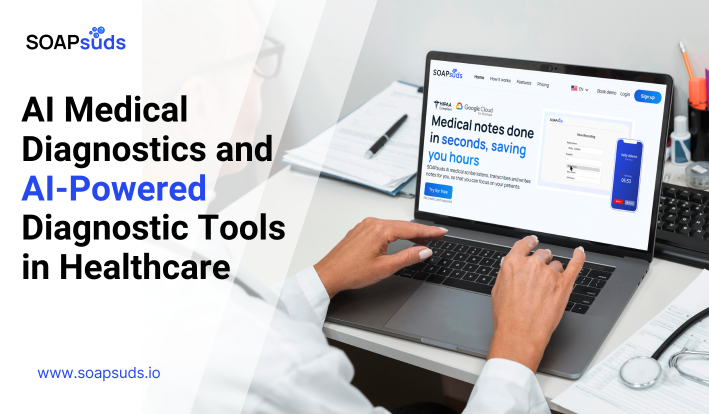Implementing NLP (Natural Language Processing) in Healthcare
SOAPsuds team
Published: 2/24/2025
SOAPsuds team
Published: 2/24/2025

Delivering quality healthcare today depends on smooth EMR/EHR data sharing and connectivity among devices...

A landmark study by the journal of science in 2019, Science reported that an algorithm...

HIPAA, the Health Insurance Portability and Accountability Act, is a key regulation that significantly...

Human-AI partnerships refer to the joint effort between human expertise and AI technology aimed at...

AI Medical Scribes, like SOAPsuds, are changing how healthcare providers handle patient data by accurately...

Artificial Intelligence (AI) in medical diagnosis involves using computational techniques and machine learning models to...
Clinical Notes
SOAP notes
DAP notes
AI medical notes